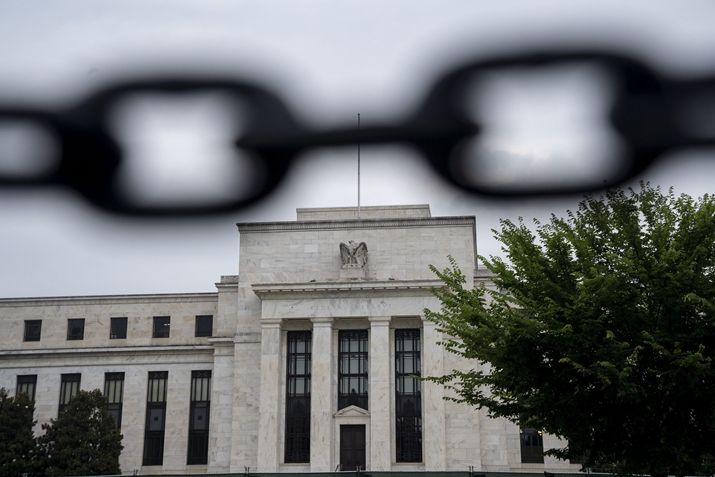| World |
| Economists call for more diversified currency system | |
|
|
 The U.S. Federal Reserve in Washington, D.C., on June 22 (XINHUA)
Mindful of the U.S. monetary policy's role in fueling the 1997 Asian financial crisis, economists have reiterated caution against lingering dollar dominance. Funds poured back into the U.S. from Southeast Asia as the Federal Reserve (Fed) began to raise its benchmark interest rate to head off inflation, a factor that sparked the 1997 crisis, Wang Yiming, Vice Chairman of the China Center for International Economic Exchanges, said at a forum on August 19. At the event, hosted by the China Development Research Foundation, online and offline participants gave a full account of the turmoil 25 years ago and discussed what can be learned to cope with the latest challenges. In response to record high inflation at home this year, the Fed has introduced a series of interest rate hikes. The appreciation of the U.S. dollar, the dominant international currency, is likely to bring volatility to the world economy, Zong Liang, Chief Researcher with the Bank of China, told Beijing Review in a previous interview. Forum participants agreed that a more diversified international monetary system could help forestall a similar crisis. "Compared with 25 years ago, the share of the U.S. in the world economy has declined. It is more difficult for the U.S. economy to support the status of the dollar," Dai Xianglong, former Governor of the People's Bank of China, the country's central bank, said. However, emerging economies and developing countries continued to increase U.S. dollar reserves as a cushion to protect their domestic currencies, exposing themselves to risks. In this context, it is important to hasten international currency diversification, Dai said. Following the 1997 crisis, Asian countries began to discuss their common financial problems. For example, the Association of Southeast Asian Nations, along with China, Japan and the Republic of Korea, launched the Chiang Mai Initiative (CMI), the first regional currency swap arrangement, in May 2000. The CMI aimed to address short-term liquidity difficulties in the region and supplement existing international financial arrangements. However, the CMI and other initiatives, such as the proposed Asian Monetary Fund, failed to make substantial progress. Yu Yongding, an academician with the Chinese Academy of Social Sciences, said it is high time for Asian economies to deepen regional financial cooperation and reduce excessive reliance on the U.S. dollar. "I would guess there will be a period when more currencies play roles," Fan Gang, President of the China Development Institute in Shenzhen, said. "We need international cooperation. Unfortunately, geopolitics is working strongly against us," Jeffrey Sachs, Director of the Center for Sustainable Development at Columbia University, said. "Right now, the U.S. does not cooperate with other countries, particularly with China, and relations are quite difficult." Sachs said he hopes the Group of 20 can remain a prime platform. "The body's summit could be an opportunity for the U.S., European members, China, and other countries to cooperate to prevent any kind of cascading crisis right now," he added. The U.S. abuse of its financial power is also a cause for concern. For example, in the wake of the Russia-Ukraine conflict, the U.S. removed Russian banks from the SWIFT international payments network and froze Russian central bank assets. "It's quite abnormal," Huang Yiping, a professor of economics at the National School of Development under Peking University, said. SWIFT and the dollar-dominated foreign exchange reserve system should be considered global public services, which should not be used as political tools, Huang said. "It is a fact the dollar is first and foremost determined by monetary policies of the United States that serve the United States," Bert Hofman, Director of the East Asian Institute at the National University of Singapore, said. It is his belief that other countries need to establish organizations to better protect themselves. Copyedited by G.P. Wilson Comments to taoxing@cicgamericas.com |
|
||||||||||||||||||||||||||||
|